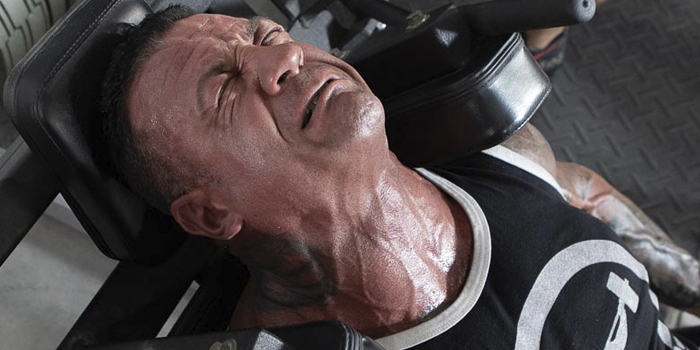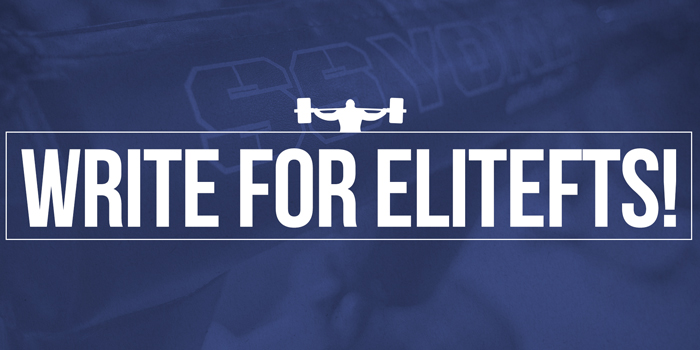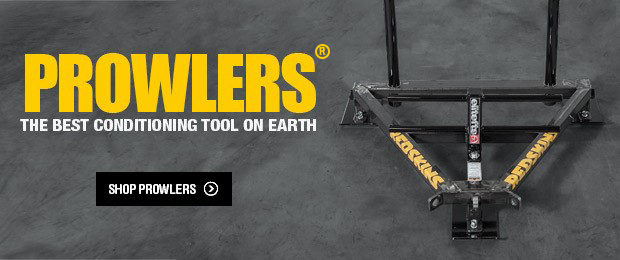
I am an old head; I have been around a long time. I started training in 1984, right before the summer break. That fall, I started my freshman year of high school. I honestly believe (and so do a lot of other people) that I started training in what I consider the best era of bodybuilding ever, and this has nothing to do with competitors' physiques or the level of the sport at that time. It has to do with gym culture and how it has changed dramatically—to the point of having very little comparison to current times.
I started training at the Y-Center (YMCA) in Battle Creek, Michigan when I was only 14. These days, no 14-year-olds will be allowed to work out without a parent, if at all. At that time, it was an unwritten rule that if you were there to train hard, no one cared that you were underage. I was convinced that I would win the Olympia one day, so I buried myself in muscle magazines, trying to learn as much as I could about how to train correctly.
I dreamt of gaining the respect of the regulars. Even forty years later, I can rattle off their names and see their faces like it was yesterday. Some had great physiques, while others were just brutally strong. The common thread, though, was these guys (there were ZERO women in this gym) were there every single day at the same time. Early on, I learned that consistency was vital to getting huge and strong. I was the smallest and weakest guy in that gym, and as much as I did not like that then, I am glad that is how it all started.
The Gym Culture
The gym floor was concrete and covered only by old conveyor belts from Kellogg's. There was no carpet or even gym mats. The weights were the old-school York plates that made that ever-relatable sound while benching or squatting. I can not explain the sound, but if you know, you know. Dumbbells were strewn everywhere except the dumbbell rack. If you needed a pair of dumbbells, you found one and walked around with it until you found the other one. No one complained because that was just how it was. The chin-up bar was fixed to the concrete braces overhead and made of steel pipe.
To give you an idea of how long ago this was, guys would hang from their gravity boots to do abs or sometimes do upside-down triceps extensions that mimicked a cable press down. 80s music blared from the speakers, and every time I hear "Born In The USA" or "Dancing in the Dark", it takes me back to that moment in time.
RECENT: Master These 5 Things Before Hiring a Trainer
Since then, I have trained in a lot of gyms. I have traveled the country to meet and work with clients, and I also used to travel quite often to do seminars. I have lived in Michigan, Colorado, and South Florida (because there is Florida and then there is South Florida, and they might as well be two entirely different states). So I have seen awesome gyms, shitty gyms, garage gyms, franchise gyms, and I have even trained at an Equinox. I have pretty much seen it all. Nothing compares to the gym culture of the 80s.
Everyone complains about tripods and cameras these days, but I honestly do not give a shit about that. I do not care about influencers, small guys giving training advice, or filming every rep of every exercise they do. That all pales in comparison to the changes I have witnessed in the last forty years, and I want to share with you what it used to be like.
Changes in the Last 40 Years
Giving Advice
Not only could you ask for advice from the big guys back then, but they enjoyed giving advice. Some would say they would answer your question later when they finished training, but most guys would talk to you in between sets. In retrospect, I think it was their 80s-social-media attention at a time when there was no social media. It is as if they relished the faux celebrity status and were flattered that someone looked up to them. It seemed genuine and unforced—not at all obligatory or contrived.
Not only would the big guys answer questions, but they would routinely give unsolicited advice. Try that today and see how that works out. If I were doing an exercise that could be done better or differently, someone would stop me in the middle of my set and correct me—not with arrogance or condescension but just to be helpful, and you know what was odd? NOBODY turned down the advice or was ever mad that someone interrupted their set. We were appreciative that someone would take the time to help us. I remember coming away from those discussions feeling like I had gained yet another edge or "gem" that would get me that much closer to my goal of winning the Olympia.
Noise Differences
Another thing that stood out at that time was the amount of noise people would make. By today's standards, people were making way too much noise. Grunt too loud these days or say something out loud during a set that motivates you, and you will find yourself on social media going viral, getting destroyed by hundreds or thousands of people who are smaller and weaker than you. We would yell at each other, and you did not even have to know the person to be supportive. If someone rattled plates in a squat rack, it was not uncommon to yell something motivating from across the gym. It was our little community of bros, and everyone was on everyone else's side. We wanted to see each other succeed and pat each other on the back.
Working In
I was training the other day at a gym here where I live, and I wanted an incline press machine that was being used. So, I gave my rehearsed phrase, "How many sets do you have left, or are you just getting started?" The guy shocked me when he asked if I wanted to work in. I laughed and asked, "How old are you?" He responded with 35 but asked why. So, I told him no one under 45 would even think of asking if anyone wanted to "work in."
I can not remember the last time someone asked me if I wanted to work in or if THEY could work in. I always tell people they can work in with me, but you would think I just asked to see their wife naked. Apparently, working in is far too intimate for people these days. I call it "sharing," but I guess that is what they do not want to do with their wives, either. *shrug* My point is that no matter how big or small you were, you could work in with someone if you wanted to. It rarely happens these days, and do not use the excuse of COVID because it was not any different in 2019 than it is now.
Spotting
Spotting someone or asking for a spot has a similar negative connotation. These days, it is a bit of an eye roll if someone asks to spot them. They will usually do it but begrudgingly. Inside, they are thinking, "MAAAN, I'm trying to train, bro." And they probably think you should just use weights you know you can handle on your own. We would not just spot someone, but we would hype them up and say stupid shit to motivate them during the set, too. If one of the big guys asked you to spot them back in the day, you knew they respected you, or they would not have asked. Most big guys would go to another big guy for a spot, so I knew I had arrived when I was asked to spot the big bros.
The Hierarchy
There was one taboo thing you could not do back then, though, that is not even thought of these days, and it was based on a Neanderthal hierarchy of sorts: You did not walk in front of someone who was big if they were using the mirror to watch themselves during a set. I was destroyed a few times for doing this, but it was not by someone big. I knew who the big boys were, and I knew not to come between them and the mirror. When I got destroyed a few times, it was by someone who was only slightly bigger than me, and they apparently thought they deserved reverence. I suppose this situation could be the 80s version of walking between someone and their phone if they are doing a video.
There was a hierarchy, and it was understood. Big guys got to use your dumbbells if they needed them. If you got to a bench at the same time as a big guy, the big guy got the bench, and everyone understood it and was fine with it. Try that today. You will find yourself again on a viral video being blasted by people who do not even work out.
Bench Cooties
Oh, and wiping down benches in the 80s? Yeah, no. If you did not like that the guy on the bench left sweat all over it, you were a pussy. We were all sweating, and it was considered part of the game. I do not even remember caring or even noticing that there was sweat on a bench back then. Whenever someone goes to wipe down a bench I am waiting for, and they just finished using it, I tell them not even to bother—no worries. If I were going to get cooties from a bench, I would have already gotten them in the last 40 years. With as much blood work as I have done in the previous 20 years, not once have my cootie markers been high. I think I am good.
Final Thoughts
My point to this stroll down memory lane is that there really is not much of a point. I am just reminiscing, I do not hold so tight to the past that I get mad about change. I think that is why I do not get mad at the influencers doing their thing. Of course, I am not going to avoid their area, and I am not going to make any effort to walk around them, but I am good with what they are doing as long as it does not change what I am there to do.
Things change over time—I have changed; gyms have changed; bodybuilding has changed, and whining about it is not going to change it from changing. I love the gym as much in 2023 as I did in 1984. I just show up these days in a nicer car and more aches and pains—Just Sayin'.
Ken “Skip” Hill has been involved in the sport of bodybuilding for almost forty years and competing for twenty-plus years. Born and raised in Michigan, he spent 21 years calling Colorado home with his wife and their four children. Four years ago, he and his wife traded the mountains for the beach, relocating to South Florida. His primary focus is nutrition and supplementation, but he is called upon for his years of training experience, as well. He started doing online contest prep in 2001 and is considered one of the original contest prep guys (when the bodybuilding message boards were still in their infancy). Skip’s track record with competitive bodybuilders is well-respected, and he also does sport-specific conditioning, including professional athletes.











I hope you and yours are doing well, too!
I reminisced with you. I do miss those day, but like you it isn't worth the time or energy to bitch about change. You just hope you can find a gym that won't ban you for not deadlifting quietly.
Definitely brought back a few memories. Thank the Iron gods there are some of these gyms still around (complete with slightly crusty Nautilus equipment)
I started training at home in about 2014. I didn't step foot into a gym again until around 2022. I don't know what the hell happened between 2014 and 2022, but yeah, that's when I saw the change. I couldn't even train at the boxstore gym I joined. I felt like caveman amongst the pampered gentry. Even the "hardcore" gym I joined came up short. The spotting thing is what bothered me the most. I used to offer spots to people when I saw them getting close to their top set. Now, stop anyone and it's like you're asking for nonconsensual sexual services.
I love stories like this.
I remember watching a guy who I considered a God, squat 405 outside of a rack, and he was so drunk he could barely balance the weight. However, he was moving the weight like it was 135. I was just a kid, so I thought it was sooo cool. Now that I'm older, I am quite clear that he was battling demons that I was unaware at that time.
Another thing you could mention is that back then, if you spoke to someone, they could actually hear you. Now they all have ear buds or headphones. And they sit forever on benches or at machines playing with their phones between sets. When I want to work in, I have to wave my hand in front of their face. I asked one if it was thumb day. It always works though because they are startled and taken aback by the crazy old guy who looks serious and is trying to finish his workout.
Spotting; used to be a known unwritten rule, if you asked for one, after the first set, just a heads up from you and they’d be there for your second set AND third (the norm back then).
Wanna plate pulling drop set? You got it, a killer set and again and again.